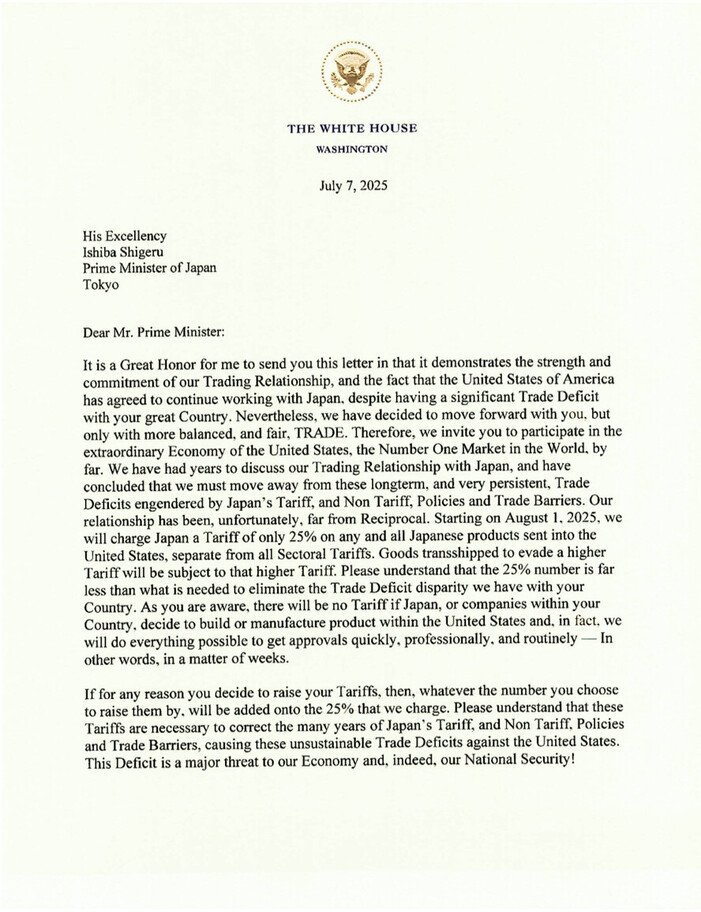白宫,华盛顿。2025年7月7日
尊敬的石破茂首相阁下
日本首相
东京
首相阁下:
我非常荣幸向您致此信件,它体现了我们贸易关系的稳固与承诺,也表明尽管美日之间存在显著的贸易逆差,美国仍愿继续与日本合作。
然而,我们已决定仅在贸易更加平衡和公平的前提下与贵国继续前行。因此,我们诚挚邀请贵国参与美国这一全球第一大市场的非凡经济体。我们已就美日贸易关系进行了多年的讨论,并得出结论:我们必须摒弃这些长期存在、极具持续性的贸易逆差,而这些逆差是由日本的关税、非关税政策以及贸易壁垒造成的。我们的贸易关系,不幸地,已不再是互惠的。
自2025年8月1日起,美国将对所有日本出口至美国的商品征收25%的统一关税(不含行业特定关税)。任何试图通过第三国转口来规避该关税的商品也将适用更高的税率。
请理解,这25%的关税远低于弥合美日之间贸易赤字所需的水平。如您所知,若日本或贵国公司决定在美国境内建设工厂或生产相关产品,将不会被征收该项关税。事实上,我们将尽最大努力快速、专业、常规性地推进审批流程——换句话说,只需数周即可完成。
如果贵国出于任何原因决定提高对美国商品的关税,那么无论加征多少,美国都将在既定25%的基础上追加相应比例。请理解,美国采取这一系列关税措施,是为了纠正多年来日本通过关税、非关税政策和贸易壁垒造成的不可持续贸易逆差。
这种贸易逆差已经成为美国经济乃至国家安全的重大威胁。

免责声明:本文章仅代表作者个人观点,不代表本平台的立场和观点。本文章仅供信息分享,不构成对任何人的任何投资建议。用户与作者之间的任何争议,与本平台无关。如网页中刊载的文章或图片涉及侵权,请提供相关的权利证明和身份证明发送邮件到support@aicoin.com,本平台相关工作人员将会进行核查。




